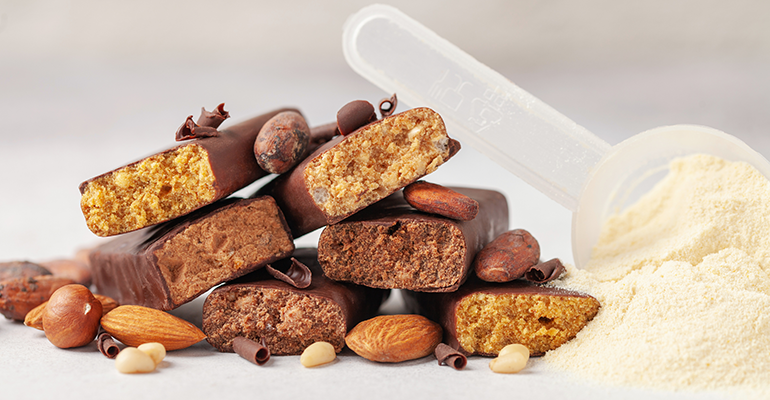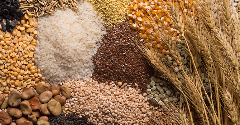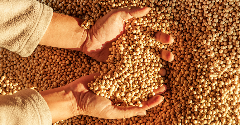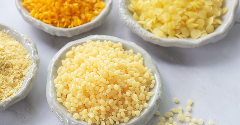News
DuPont launches cultures for plant-based products
7 May 2019DuPont Nutrition & Biosciences has announced a new cultures line that contains its premium HOWARU probiotics which are specially designed for fermented plant-based products to deliver clinically backed health benefits.
The DuPont Danisco VEGE cultures range is said to offer desired taste and texture profiles in non-dairy applications.

New additions to this range – HOWARU Dophilus VG, which contains Lactobacillus acidophilus NCFM and HOWARU Bifido VG, which contains Bifidobacterium lactis HN019 – have highly documented, positive results in human studies for digestive health and well-being, the company says.
Available in single strain form, the range is non-dairy, non-animal, non-allergen, non-GMO, and is suitable for vegan diets. It is also said to be easy to integrate with existing cultures used in plant-based fermented food and beverage formulations.“Digestive wellness is one of the top global trends for 2019. As consumers continue to make health and wellness part of their daily routines, they’re looking for benefit-focused options,” said Sonia Huppert, Global Product Leader, Plant-Based Products, DuPont. “Digestive health is an area where consumers can feel the benefits immediately. Symptoms like bloating and irregularity are treated with diet changes and with new products. Innovations in fermentation and probiotics can truly deliver solutions in this area.”DuPont conducted a research study with Global Data Insights to ascertain consumer perception of probiotics. When asked the impact respondents believe that probiotics have on health and wellness, 46% of the nearly 12,000 respondents in Europe said probiotics had a positive effect, and 65% of respondents in the United States responded positively.Validated by clinical trials, the HOWARU brand is described as a high activity, premium probiotic product with high performance, high stability and high functionality as its hallmark traits.These cultures not only respond to important wellness trends, DuPont believes, but also to the increased demand for plant-based foods and the constant desire for great taste and texture. DuPont Danisco VEGE cultures were developed for a wide-ranging variety of plant-based raw materials, such as soy, peas, coconut, almond, nuts, oat, maize, rice, fruits and vegetables, to satisfy consumer taste and texture expectations – from typical and appealing fresh, clean and mild flavours to new, pleasant unexpected flavours.“We have the broadest portfolio for plant-based fermented foods and beverages and a deep passion to not only help deliver the food experience consumers desire, but also to bring the health benefits they’re continually seeking,” said Didier Carcano, Global Marketing Leader, Cultures, DuPont. “We aim to continue investing in this area, growing our probiotics expansion efforts and working with our customers to create essential health solutions for growth opportunities across the globe.”Related news

BelliWelli secures funding for retail and team expansion
2 Jan 2025
US fibre brand BelliWelli has confirmed a further $10 million series B investment from Invus. The investment will help the company further expand its presence in the US.
Read more
EU calls to harmonise allergen labelling increase
1 Jan 2025
Allergy awareness efforts focus on implementing a European reference laboratory and collaboration to standardise labels and support allergen identification.
Read more
Japanese study points to risk of excessive nutritional fortification
31 Dec 2024
Fortified foods and supplements are mainly beneficial but there is a small risk of over-supplementation – particularly for vitamin B6, a Japanese study has concluded.
Read more
Is it time for a global definition of whole grain?
30 Dec 2024
Amid a lack of harmonisation, the European Food Information Council (EUFIC) is calling for a global definition of the term whole grain to end consumer confusion.
Read more
EFSA publishes new food additive research on non-nutritive sweetener saccharine
27 Dec 2024
The European Food Safety Authority (EFSA) has released new recommendations on saccharin and its sodium, potassium and calcium salts (E 954) as food additives.
Read more
FDA delivers workshop on nutrition regulation and science
19 Dec 2024
The FDA hosted a nutrition regulatory science workshop exploring ultra-processed foods and emerging technologies, aiming to spotlight the relationship between nutrition, science, and evidence-based policies.
Read more
How US soy exports shape Southeast Asian food
19 Dec 2024
As Southeast Asia and the US mark 20 years of trade, trends in soy, especially plant-based preferences, signal increasing demand for high-quality protein sources.
Read more
Hormel Foods sells its Health Labs brands to Lyons Magnus
17 Dec 2024
Hormel Foods has confirmed the sale of its Hormel Health Labs division to Lyons Magnus, creating Lyons Health Labs. The strategic move aims to better position Lyons Magnus as a leading player in the growing US market for nutritional and health products...
Read more
Nestlé releases products for pregnancy and fertility
13 Dec 2024
Building on in-house research, existing scientific evidence, and consumer demands, the global food company has developed products designed for mothers and babies.
Read more
Consumer awareness and transparency key factors in shift to natural-based emulsifiers
11 Dec 2024
The demand for natural-based emulsifiers in the food industry is surging as health concerns over the use of synthetic emulsifiers have consumers looking for alternatives.
Read more